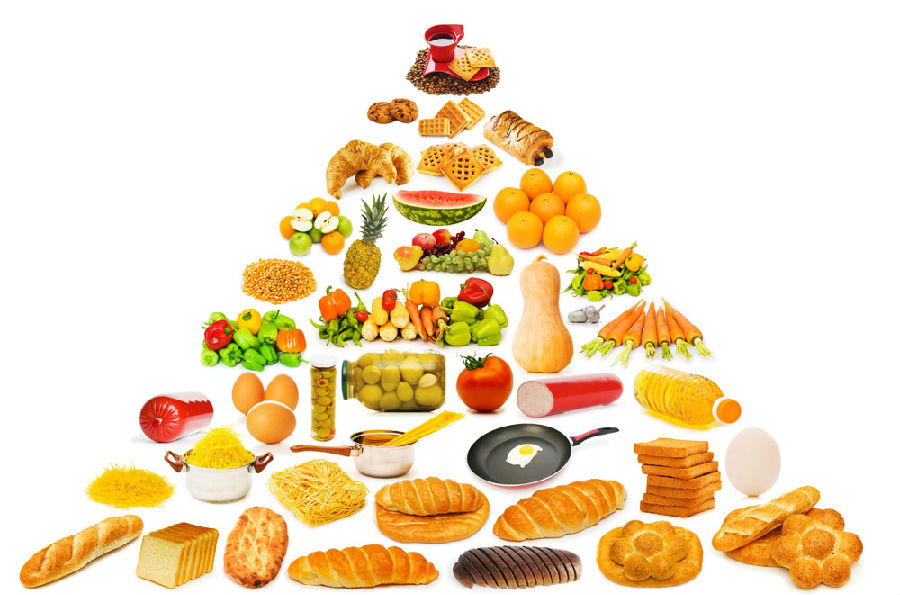What if we choose something else?
其它東西呢,
What if we choose something like a turkey sandwich?
比如火雞三明治
A turkey sandwich, most sliced breads
火雞三明治中一片面包
have about 10% of your recommended daily value of salt
大概含有10%的推薦鹽攝入量
If you put anything on top of that sliced bread
上面還要加其它東西
If you add turkey, cheese, ham,
加火雞,奶酪,火腿,
whatever you want to add all of that quite a lot of salt
這些也含很多鹽
You cover it with another piece of bread that is another 10%
再上面還有一層面包,又是10%
If you spread anything on your bread when you're eating it
面包上也許還要加上醬料
catchup, mustard, mayonnaise, salt in all of that and the pickles as well
番茄醬,芥末醬,蛋黃醬,這些又含有鹽
You can, with quite a conservative turkey sandwich
一個普通火雞三明治,保守估計
have up to 50% of your daily value of salt
就會占日鹽攝入量的50%
more than the bag of chips that you might choose to avoid
你可能會避免吃薯條
if you're trying to lower your salt intake
但這比一袋薯條含鹽量還高

Raisin bran for a healthy breakfast?
麥片做早餐營養(yǎng)嗎
Even when we start out breakfast in the morning
哪怕是吃早餐
The salt is there in the cereal that we eat
麥片中也會有鹽
It's really 300, 350 mg of sodium
含300 350毫克的鈉
Milk that you add to your cereal also has salt
加入麥片的牛奶也有鹽
And so you can start out with a healthy breakfast and already
這么一頓營養(yǎng)早餐
be a little bit behind the eight ball in terms of your salt intake for the day
就已經(jīng)讓你攝入了不少鹽
So it turns out, the sources of salt in our grocery bags
可以看出,日常食品中的鹽
most of it is actually coming from breads and cereals
主要來自于面包和麥片
From breads, from cereals, from pastas, from pastries
面包,麥片,面食,點心
All of those really are the major contributors to salt in our diet
這些都是膳食中鹽的主要來源
About a quarter comes from meat and meat products
大概四分之一來自肉和肉類產(chǎn)品
and about 8% from milk and milk products
大約8%來自牛奶和乳制品
and obviously this varies depending on whether you're a vegetarian or other things
顯然,這取決于不同人,素食者肯定不是如此
but it turns out that whether you're vegetarian or you eat meet
不過,不管你是素食者還是吃肉的人
It's pretty hard to avoid salt if you're eating processed, prepared or packaged foods
從加工,餐廳,包裝食物中,都很難避免鹽
Why do food manufacturers use so much salt?
食品制造商為何加那么多鹽
Well, we know historically that salt is an important preservative
歷史上,鹽是重要的防腐劑
So over time before people had refrigeration,
擁有制冷技術(shù)之前,人們都是使用鹽來防腐
They used salt as a way to keep food from going bad
擁有制冷技術(shù)之前,人們都是使用鹽來防腐
It turns out that this is probably not the main reason
不過這并不是食品中含很多鹽的主要原因
that there's so much salt or sodium in the foods that we eat
不過這并不是食品中含很多鹽的主要原因
There are a few foods that really require sodium containing preservatives
少量食物確實需要鈉鹽來防腐
but many more that don't
但大部分不用
and still have much more sodium added to them than it's required for preservation
而且鹽的量遠遠超過了防腐所需
A major reason this taste
一個主要原因是味道
It turns out that salt is a very cheap way to add flavor to food
食鹽很便宜,但能有效增加食物風(fēng)味
And those of you who baked chocolate chip cookies
做過巧克力曲奇的人都知道
you know that you need salt to make sweet things taste good
需要鹽讓甜東西味道更好
And you also need salt make salty savory food taste good
風(fēng)味食品中也需要鹽來調(diào)味
And it's a very cheap way to do it
鹽很便宜,而且效果好
If you are trying to keep the cost down on a packaged food product
對于包裝食品商而言,是絕好的選擇
It turns out that our bodies get very habituated to salty foods
人體容易習(xí)慣食物的咸味
And we learn to get that food should taste as salty as it currently tastes
覺得咸度應(yīng)該在這個習(xí)慣標準
The good news is that this can be unlearned
好消息是,習(xí)慣能重新建立











